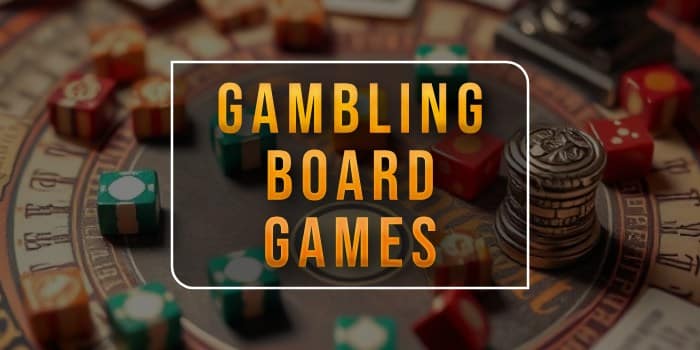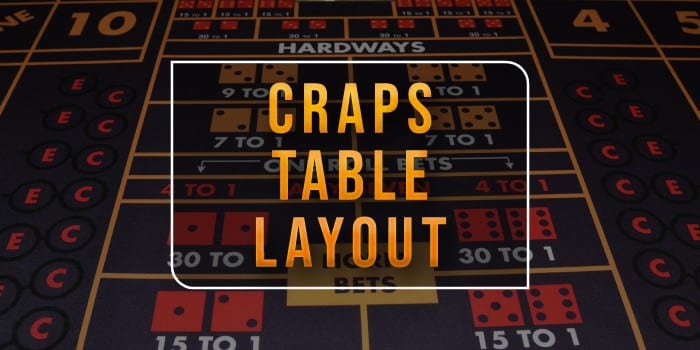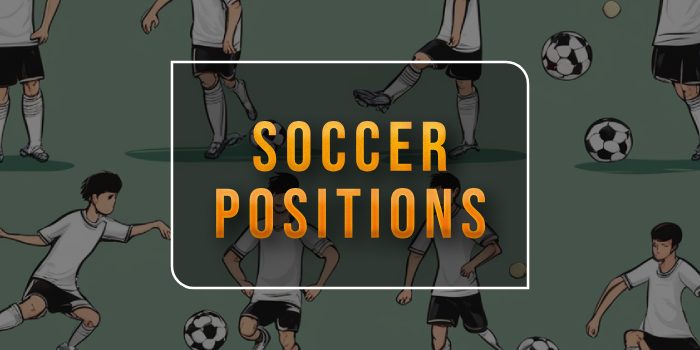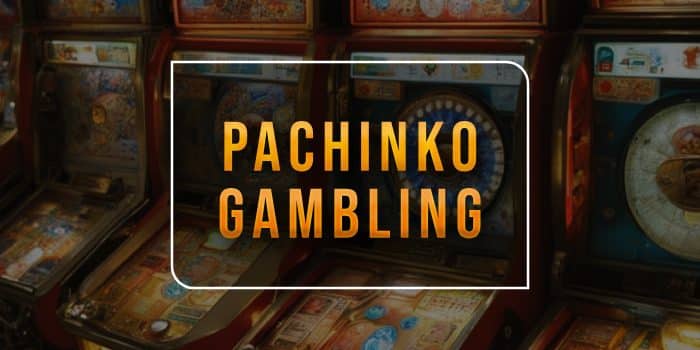- Casino
- By State
- Alabama
- Alaska
- Arizona
- Arkansas
- California
- Colorado
- Connecticut
- Delaware
- Georgia
- Florida
- Hawaii
- Idaho
- Illinois
- Indiana
- Iowa
- Kansas
- Kentucky
- Louisiana
- Maine
- Massachusetts
- Maryland
- Michigan
- Minnesota
- Mississippi
- Missouri
- Montana
- Nebraska
- Nevada
- New Hampshire
- New Jersey
- New Mexico
- New York
- North Carolina
- North Dakota
- Ohio
- Oklahoma
- Oregon
- Pennsylvania
- Rhode Island
- South Carolina
- South Dakota
- Tennessee
- Texas
- Utah
- Vermont
- Virginia
- Washington
- West Virginia
- Wisconsin
- Wyoming
- By State
- Slots
- Poker
- Sports
- Esports
- Home
- Why Online Gambling Is More Dangerous Than Casino Gambling
Why Online Gambling Is More Dangerous Than Casino Gambling

The Internet has certainly enriched our lives by making knowledge and entertainment more readily available to anyone. Yet, it has exacerbated some trends while alleviating others. It has certainly helped with education, but on the flip side, it has made riskier hobbies, such as casino gambling, available without necessary maintaining the necessary checks and balances you would find at a brick-and-mortar casino.
That naturally makes us wonder why online gambling is more dangerous than traditional gambling today and what we can do to mitigate any potential risks. We will take a closer look at the good and bad and pinpoint what makes Internet casinos so tempting. The risk of gambling addiction aside, we take a deep dive into valid concerns, trumped-up fears, and consumer protection.
The Dangers of Online Gambling
Online gambling is virtually available to anyone who has access to the Internet. It’s perhaps one of the biggest entertainment revolutions in entertainment, and it’s a fairly new phenomenon, started around 1993 when the first real money online casino launched. Since Internet casinos launched, they have been the main entry point to online gambling for many players.
However, as casinos proliferated, consumer-protection practices have lagged. Some casinos have decided that it would be okay to operate without the necessary licenses and regulatory supervision, turning them into rather dangerous places to stake your money on.
Even not factoring in the so-called “bad actors” and disreputable companies, online gambling has an appeal that can often prove a little too strong and a little too compelling than is reasonable. To help you better read how online gambling makes things a little riskier for you, we will highlight the main issues associated with it.
Is it all bad? Not necessarily. After all, availability is what makes online gambling appealing, and it should not be interpreted as a negative trend entirely. We will talk about some of the upsides of having online casinos one click away after listing all the potential risks first.
#1 Too Readily Available
That is the first issue many people take with online casinos. They are too readily accessible, more so than brick-and-mortar casinos. Even in the United States, where there are over 1,000 brick-and-mortar casinos, both commercial and tribal, online gambling sites proliferate. The licensed Internet casinos are around 30, but you have 3,200 casinos that target gamers in the United States.
This means that there is no shortage of gambling options when it comes to online gambling. Virtually, any quick search for an online casino will return results. Naturally, the best ones are those that a regulator has licensed in the place where you live, but they are not always the first ones to show in results.
Making casinos too readily available has long been a red flag for regulators, too. Lack of regulation has allowed some operators have been able to take advantage of their customers without any accountability.
#2 Can Become Addictive
Online gaming is fun, fast-paced, and fairly cheap. However, the temptation of thousands of gaming machines available right on your screen and now on your mobile device can quickly pull you in and have you playing unreasonable amounts, and spending large sums.
While most online casinos lure you in with a promise of flexible deposits and betting limits, there is no shortage of high rollers who hit the online casino tables. Therein is the trouble. Since online gambling is a bit compulsive and too accessible, players can quickly go from having fun to showing early signs of addiction.
That is an addiction that you can feed at almost any time. After all, taking the plane to Las Vegas or driving to the local casino still takes physical effort that discourages many people from frequenting gambling facilities too often. It still happens, but not with the same intensity.
When you have online gambling brought to you on a pedestal, you can access it pretty much at any time. In fact, it has been proven that online casinos generate the bulk of their operating income from high rollers, which ultimately means that they are looking into those players who are the most at risk of becoming addicted.
#3 There Are Rogue Casinos
Things are certainly getting better, and the industry is maturing to the point where unauthorized casinos aren’t able to so readily offer their product to whomever they wish. Online gambling used to be a novelty phenomenon a decade ago, but today, the legislature is catching up, and this means lawmakers are prepared to enforce the right rules.
Yet, rogue operators still find a way. The truth is not many people can immediately tell the difference between a reputable and a disreputable casino. Third parties’ services that review casino brands certainly help, but they usually take a cut of conversions, making you think twice before taking anyone’s opinion at face value.
Online gambling, though, is now under more scrutiny, and we don’t talk about regulators but consumers. People are coming together to comment and rate casinos in a way that quickly exposes any ill-begotten ones and sings praises to those that deserve them.
How do you spot a rogue casino? Usually, they will have a poor selection of games, a little dated user interface, and overall not provide too much information on their page, use fake customer support names and registration addresses, and more.
#4 Consumer Protection Is Not Always There
Another reason why online gambling is considered more dangerous than visiting a casino is the lack of sufficient consumer protection. With regulation changing rather quickly in recent years, this argument is true for those online casinos that are not part of heavily regulated jurisdictions.
In our experience, lack of consumer protection mostly affects high rollers, as checks take a long while to complete at many casinos, and this is time used by the players to spend extravagant amounts playing online.
Consumer protection is supposed to run KYC and AML checks, at least at the most heavily regulated and trusted casinos, and make educated decisions on whether a player can afford to deposit and bet as much money as they have been doing.
Not many players are savvy and know what customer protection they should be looking for, and that often leads them down a bad path. Generally speaking, online gambling sites should always provide you with self-exclusion tools, links to organizations that will support you, and help you overcome early or advanced symptoms of gambling addiction.
#5 Can Bring Financial and Emotional Ruin
Online gamblers can easily go from perfectly happy ordinary people to someone who experiences emotional and financial turmoil that makes daily life a challenge. Online gambling addiction is a serious illness that brings many downsides and puts men and women through hardship.
You may be thinking that you are too smart to get dragged into gambling, but addictive behavior usually stays dormant until you try and find yourself unable to resist. There are different types of gamblers, too. Some only stay addictive over short periods and then lose interest.
Others, though, find it much more difficult to resist the temptation, even though they are financially and emotionally distressed to the point where it becomes challenging to carry out the usual daily chores and social obligations.
Now, this is not all the fault of online gambling websites, certainly, and people do carry responsibility for their actions, but when addiction strikes, we need to get adequate help, which may not always be the case online.
How Does Online Gambling Compare to Casinos?
In fairness to the argument, we have decided to compare land-based casinos to online gambling. Today, an estimated 20 million Americans are, to some extent, addicted to gambling so much that it interferes with their daily lives and social responsibilities.
Data isn’t too readily available but based on research by John W. Welte called “Gambling and Problem Gambling in the United States: Changes Between 1999 and 2013,” the numbers of problem gamblers in the United States have remained the same in the survey period.
That is less than ideal because it doesn’t really touch on today’s numbers in full. However, it shows that there was no immediate sharp increase in gambling addictions a decade after the first online casinos were introduced to the United States.
While there have been clear signs of more online activity recently, it would be unfair not to apply the argument of over-spending to land-based casinos. A land-based casino does AML and KYC checks a little more differently, for starters, but on the action-packed casino floors, properties hardly have the time to check every customer.
That is something that, in an ideal world, online casinos can do quickly, efficiently, and reliably, leading to better control over problematic gaming practices. Of course, not all online casinos do, and until they do, online gaming may become the unloved child to many conscientious observers.
What Are Regulators Doing to Control Online Gambling?
The world has changed drastically since the 1990s. Gambling sites are no longer operating in a state of regulatory limbo where they reap their labor’s fruits but give nothing back. In fact, regulators have grown tougher, smarter, and much savvier as to what practices should be ruled out altogether.
Whether it concerns traditional casino games, poker, or live dealer games, watchdogs are finally up-to-date with what needs to be done to ensure that operators meet governing frameworks that allow players to enjoy more protected and rewarding gameplay. There have been many changes over the recent years.
Credit Card Bans
One of the biggest successes in the regulated casino market has been introducing a credit card ban that effectively prohibits gambling sites from accepting credit cards as a viable payment method. The onus of enforcing this rule falls on both operators and payment processors, such as banks and e-wallets, who have been making sure to toe the regulatory line and not play favors with operators.
Affordability Checks
Affordability checks are among the greatest successes achieved by the industry and regulation in the online gambling sector. While these checks are still lagging in the retail space, they have been a modus operandi in online gaming. Casinos are obligated to run careful checks on their customers to ensure that a person can afford to spend a given amount of money. Failing to do so is punished by regulators and often results in seven-figure fines.
Cool-off Periods
Another innovative twist that protects the modern-day online gambler is the cool-off period that will suspend you from play for a specific period of time. The cool-off can be a small delay between spins on an online slot, for example, or it can be a self-exclusion lasting а day, months, or even years. It’s a potent way of limiting harmful gambling practices and is certainly useful in enforcing a safer online gambling environment.
Reducing Total Bet Size
Online businesses have had it somewhat easy for a fair while now, successfully leveraging the ability to save up on retail costs and offer players flexible betting limits. Well, regulators have finally caught up that allowing players to bet too much too quickly has been leading them down treacherous paths. That is why some jurisdictions are now actively pushing to fix the max slot betting size, for example, to as low as $2. The measure is not welcomed by gambling stakeholders who argue that it could completely ruin their businesses.
Limiting Monthly Losses
In enforcing further protection, many online casinos are now obligated to set the monthly loss limit per player at $1,000 unless they have cleared all AML and KYC checks and have proof that their income is sufficient to cover bigger losses without deteriorating their quality of life. Limiting monthly losses is indeed one thing that casinos can do to protect consumers, but they are not obligated to do so in every jurisdiction.
Give Online Gambling Websites Credit
After all the negatives and potential dangers we have touched upon, it’s time to give casinos a bit of a credit where such is due. While online gambling venues are certainly far from ideal and invite risks, dismissing them all together would be unfair. As explained earlier, these websites use many tools that allow them to track data in real-time.
That data can then be used to reliably enforce safeguards that will prevent gamblers from coming in harm’s way. Automated tools, checks, and partnerships with AML and KYC companies mean that online casinos can achieve a level of insight into their customers that land-based casinos simply cannot.
Now, whether all sites will go the extra mile in ensuring that this is the case here is another matter altogether and one that you can surely object to. However, if the Internet gambling industry is regulated to the highest industry standards, it will probably be more reliable than even the most reputable land-based brands.
Dealing with Addiction from Online Gambling
When gambling addiction strikes, it’s hardly pretty or something easy to deal with. Excessive gambling practices can lead you to burn through your savings at a rapid and foolhardy pace that leaves you penniless and precipitates anxiety, depression, recklessness, and more.
Coming to terms with the fact that you may be an addict is not easy, and it often requires external help. Getting such help today is easy if you are willing to open up. Online treatment and support groups are readily available, and they can provide you with the necessary help you are looking for.
All you need to do is shake off any fear about stigma or people not accepting you, and you can find a solution to what is admittedly a very difficult problem.
Online Gambling: Nor Good, Nor Bad
To bring this article to a conclusion, we must remind ourselves that addictive practices can easily ruin a happy life. We must exercise caution in our daily lives and keep a vigilant eye out for temptations that can go from fun to reckless in a matter of minutes. Online gambling surely invites many risks that can affect vulnerable and impressionable individuals easily.
In fact, even high-flyers are led down the road of problem gambling, and by the time they realize it, they are already combating a serious addiction problem. That is why Internet gambling sites should step up their efforts in enforcing reliable and consumer-focused measures.
Not just that, but online casinos can actually go above and beyond in protecting their customers if regulation is keen enough to enforce the necessary legal changes that will obligate all operators to step up. In the meantime, make sure to keep an eye out for those gambling practices that are a little risqué.
Related Topics:
Mike made his mark on the industry at a young age, consulting for companies that would later become regulators. As one of the lead editor of Gambling News, he dedicates his weekdays to this project, aiming to educate the masses on the latest developments in the gambling circuit. His expertise and passion for the industry make him an invaluable asset to our team.
Must Read
Legal
November 17, 2019
Philippine Gaming Operators Involved in Prostitution Ring
Casino
October 7, 2019
Haven Gaming to Build Danville Casino in IL
Casino
October 6, 2019
MGM To Pay $735M as Part of Settlement for Las Vegas Shooting
Casino
September 28, 2019
Swiss Casinos Group Partners with Playtech
Sports
September 27, 2019
Mobile Sports Betting Finally Coming to Indiana
More Articles















December 3, 2024
Boxers Who Started Late and Became Champions

November 19, 2024
Best Gambling Board Games

October 25, 2024
Top 20 Books About Gambling

October 23, 2024
Craps Table Layout

Casino
October 21, 2024
Megabucks Slot Machines

September 30, 2024
What Soccer Positions Are There and How They Work

September 27, 2024
The Best Arcades in Las Vegas

September 26, 2024
When to Double Down in Blackjack

September 24, 2024
Best Offshore Sportsbooks and Betting Sites

September 22, 2024
League of Legends World Championship: Odds, Tips & Predictions

September 19, 2024
How to Become Professional Gambler

September 17, 2024
What Is a Pachinko Game Machine?

September 16, 2024
Michael Jordan Gambling: The Good, the Bad, and the Ugly

September 13, 2024
Best Odds in Vegas – Which Game Is Superior?




6 Comments
I understand that online casinos have safer betting strategies but unfortunately it is human nature to seek help after the event. I recently lost a large win by not withdrawing it and then ate into the remainder of my salary. The online casino has now closed my account permanently. This action is demeaning and patronising. It is a personal choice to gamble. I think the safer gambling restrictions are an opt out for any responsibility for the online casinos after the event. If you don’t gamble then you can’t win therefore preventing players to win back some of their losses next time. The way these online casinos operate is cut throat. They just want you to make them a profit and then move on to the next willing person.
You should expect to lose more than win at any casino. They didn’t get in the business to lose. No one complains when they win so don’t listen to much to complaints of losing. If you aren’t ok with losing don’t even gamble
Quite an interesting study. I don’t know about the legality of the casino market. I try to choose an online casino only with a license. But I know for sure that this area will continue to develop.
Quite an interesting study. I don’t know about the legality of the casino market. I try to choose an online casino only with a license. But I know for sure that this area will continue to develop.
It’s all fine and well to talk about the casinos, the viability of the market, whatever, but this article just barely scratches the surface, the real issue that needs to be raised is the algorithms. Who is scrutinizing the algorithms these companies use to “shuffle” decks that aren’t physically there? And even to the decks at the live dealer tables… I don’t think this article covers how tricky and covert these websites can be. And for the person that said that these casinos aren’t in it to lose, you say it like they should win all the time and carry no risk, which is exactly what I think the problem is.
Addressing the potential dangers of online gambling compared to casino gambling is a significant and relevant topic. The convenience of online platforms can indeed make it easier for some individuals to develop problematic habits. It’s crucial to raise awareness about responsible gambling practices and the risks associated with online gaming. By fostering a culture of awareness and providing resources for those in need, we can promote safer and more enjoyable experiences for all participants in the world of gambling.”